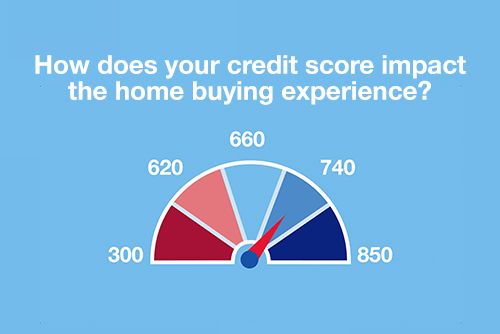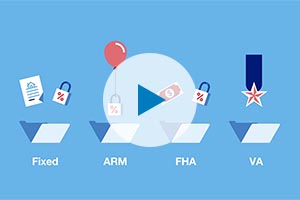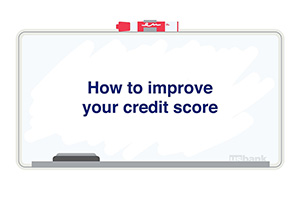
How to start investing: A beginner’s guide

Do I need a financial advisor?

Take the stress out of buying your teen a car

Checklist: financial recovery after a natural disaster

When should I refinance a mortgage?

Co-signing 101: Applying for a loan with co-borrower

How to build credit as a student

What is a 401(k)?

Start a Roth IRA for kids

Investment strategies by age

Evaluating interest rate risk creating risk management strategy

How much money do I need to start investing?

What are alternative investments?

At your service: outsourcing loan agency work

Employee benefit plan management: trustee vs. custodian

For today's homebuyers, time and money are everything

How I did it: Bought a home without a 20 percent down payment

How I did it: Built living spaces to support my family

Money Moments: Tips for selling your home

Overcoming high interest rates: Getting your homeownership goals back on track

Everything you need to know about consolidating debts

10 ways to increase your home’s curb appeal

What you should know about buying a car

Credit: Do you understand it?

Is it the right time to refinance your mortgage?

6 questions to ask before buying a new home

5 things to avoid that can devalue your home

What is a home equity line of credit (HELOC) and what can it be used for?

How to use credit cards wisely for a vacation budget

Your financial aid guide: What are your options?

9 simple ways to save

Is raising backyard chickens a good idea financially?

Here’s how to create a budget for yourself

What you need to know about renting

Maximizing your infrastructure finance project with a full suite trustee and agent

Myth vs. truth: What affects your credit score?

8 steps to take before you buy a home

What to know when buying a home with your significant other

Mortgage basics: How does your credit score impact the homebuying experience?

Mortgage basics: How much house can you afford?

Mortgage basics: Finding the right home loan for you

How does inflation affect investments?

What’s your financial IQ? Game-night edition

OCIO: An expanding trend in the investment industry

How I did it: Turned my side hustle into a full-time job

Common unexpected expenses and three ways to pay for them

It's possible: 7 tips for breaking the spending cycle

How to build and maintain a solid credit history and score

Closing on a house checklist for buyers

How do interest rates work?

How to request a credit limit increase

Multiple accounts can make it easier to follow a monthly budget

Is it time to get a shared bank account with your partner?

Don’t underestimate the importance of balancing your checking account

Which is better: Combining bank accounts before marriage — or after?

5 ways to maximize your garage sale profits

What you need to know before buying a new or used car

Asset classes explained: Cash, bonds, real estate and equities

How digital platforms streamline client onboarding for investment funds

Understanding yield vs. return

What type of investor are you?

Housing market trends and relocation impact

How liquid asset secured financing helps with cash flow

The ongoing evolution of custody: Tips for renewing your custody contract

Key considerations for launching an ILP

A first look at the new fund of funds rule

Interval funds find growing popularity

An investor’s guide to marketplace lending

What is a CLO?

Beyond Mars, AeroVironment’s earthly expansion fueled by U.S. Bank

ABL mythbusters: The truth about asset-based lending

What type of loan is right for your business?

Collateral options for ABL: What’s eligible, what’s not?

Can ABL options fuel your business — and keep it running?

ESG-focused investing: A closer look at the disclosure regulation

The unsung heroes of exchange-traded funds

4 questions you should ask about your custodian

Evaluating interest rate risk creating risk management strategy

Tech lifecycle refresh: A tale of two philosophies

Changes in credit reporting and what it means for homebuyers

How institutional investors can meet demand for ESG investing

High-cost housing and down payment options in relocation

4 benefits of independent loan agents

Middle-market direct lending: Obstacles and opportunities

Crypto + Relo: Mobility industry impacts

For today's relocating home buyers, time and money are everything

How to fund your business without using 401(k) savings

Costs to consider when starting a business

4 small business trends that could change the way you work

How jumbo loans can help home buyers and your builder business

When to consider switching banks for your business

5 tips to help you land a small business loan

Leverage credit wisely to plug business cash flow gaps

How to establish your business credit score

Good debt vs. bad debt: Know the difference

Retirement income planning: 4 steps to take

Year end tax planning tips

A guide to tax diversification in investing

Bull vs. bear market: What do they mean for you?

Investing myths: Separating fact from fiction in investing

ETF vs. mutual fund: What’s the difference?

4 times to consider rebalancing your portfolio

7 diversification strategies for your investment portfolio

Why compound annual growth matters

5 questions to help you determine your investment risk tolerance

Checklist: 10 questions to ask your home inspector

Student checklist: Preparing for college

The A to Z’s of college loan terms

How I did it: Paid off student loans

Is online banking safe?

Pros and cons of a personal line credit

3 tips for saving money when moving to a new home

Adulting 101: How to make a budget plan

Personal loans first-timer's guide: 7 questions to ask

You can take these 18 budgeting tips straight to the bank

Save time and money with automatic bill pay

Do you and your fiancé have compatible financial goals?

Personal finance for teens can empower your child

How to save for a wedding

5 tips to use your credit card wisely and steer clear of debt

6 ways to spring clean your finances and save money year-round

How grandparents can contribute to college funds instead of buying gifts

How to open and invest in a 529 plan

Is a home equity loan for college the right choice for your student

Parent checklist: Preparing for college

How to apply for federal student aid through the FAFSA

What to consider before taking out a student loan

Are you ready to restart your federal student loan payments?

5 tips to use your credit card wisely and steer clear of debt

5 steps to selecting your first credit card

How to use debt to build wealth

What’s a subordination agreement, and why does it matter?

Understanding the true cost of borrowing: What is amortization, and why does it matter?

Know your debt-to-income ratio

Your quick guide to loans and obtaining credit

Dear Money Mentor: How do I begin paying off credit card debt?

Dear Money Mentor: What is cash-out refinancing and is it right for you?

Crypto + Homebuying: Impacts on the real estate market

How I did it: Bought my dream home using equity

House Hacks: How buying an investment property worked as my first home

Managing the impacts of appraisal gaps in a hot housing market

Spring cleaning checklist for your home: 5 budget-boosting tasks

Saving for a down payment: Where should I keep my money?

Your guide to breaking the rental cycle

Checklist: 6 to-dos for after a move

What are conforming loan limits and why are they increasing

Uncover the cost: Building a home

The lowdown on 6 myths about buying a home

4 ways to free up your budget (and your life) with a smaller home

Get more home for your money with these tips

Money Moments: How to finance a home addition

Beyond the mortgage: Other costs for homeowners

10 questions to ask when hiring a contractor

What is an escrow account? Do I have one?

These small home improvement projects offer big returns on investment

Should you get a home equity loan or a home equity line of credit?

Is a home equity line of credit (HELOC) right for you?

How to use your home equity to finance home improvements

How do I prequalify for a mortgage?

Home equity: Small ways to improve the value of your home

Can you take advantage of the dead equity in your home?

4 questions to ask before you buy an investment property

10 uses for a home equity loan

Improving your credit score: Truth and myths revealed

6 essential credit report terms to know

5 unique ways to take your credit card benefits further

Test your loan savvy

Decoding credit: Understanding the 5 C’s

Should you give your child a college credit card?

U.S. Bank asks: What do you know about credit?

What types of credit scores qualify for a mortgage?

What is a good credit score?

How to improve your credit score

Questions to ask before buying a car

